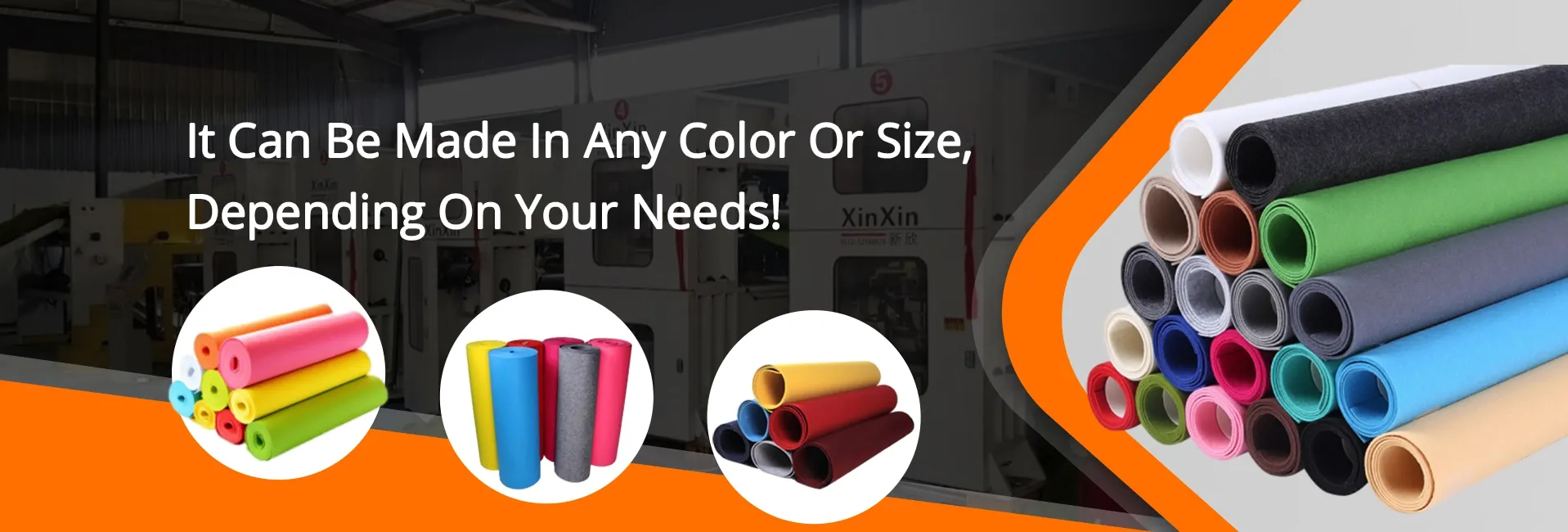Exploring the Versatility and Applications of Industrial Felt Products in Various Industries
The Versatile World of Industrial Felt Products
Industrial felt products have gained significant traction across various industries due to their unique properties and versatile applications. Made primarily from wool, polyester, or a combination of natural and synthetic fibers, industrial felt is renowned for its durability, thermal insulation, and sound-absorbing qualities. This article delves into the characteristics, manufacturing processes, and diverse applications of industrial felt products.
Characteristics of Industrial Felt
One of the standout features of industrial felt is its ability to absorb vibrations and dampen sound, making it an excellent material for reducing noise in manufacturing environments. Moreover, felt is compressible, which allows it to conform to irregular surfaces, providing a tight seal in applications like gaskets and seals. Its thermal insulation properties make it a suitable choice for applications requiring temperature stability, while its resistance to various chemicals enhances its longevity in demanding environments.
Another notable trait of industrial felt is its eco-friendliness. Many felts are made from natural fibers, which are biodegradable and sustainable. As industries increasingly prioritize environmentally responsible practices, the demand for eco-friendly materials, such as wool felt, has surged.
Manufacturing Processes
The manufacturing of industrial felt involves several key steps, including fiber selection, carding, felting, and finishing. First, fibers are carefully chosen based on the desired properties of the final product. Wool, for instance, provides natural resilience and comfort, while synthetic fibers may offer increased durability and moisture resistance.
industrial felt products

During the carding process, fibers are disentangled and aligned to create a uniform web. The felting process then follows, where heat, moisture, and pressure are applied to cause the fibers to interlock, resulting in a strong, cohesive material. Finally, the felt is subjected to finishing processes, including cutting, dyeing, and compressing, to achieve specific dimensions and characteristics dictated by customer requirements.
Applications of Industrial Felt
The applications of industrial felt products are vast and varied, spanning multiple industries. In the automotive sector, felt is used as insulation for sound proofing, vibration dampening, and thermal protection in engines and interiors. Its ability to absorb and reduce noise makes it an ideal component in car panels, while its thermal properties help manage heat in various components.
In the manufacturing sector, industrial felt serves as a critical component in machinery for pads and protective covers. It helps prevent damage to delicate surfaces and can be utilized as a separator or buffer between moving parts. Additionally, felt is commonly employed in packaging, providing cushioning for fragile products during transit.
Another significant application is in the construction industry, where felt is utilized as a moisture barrier and insulation in roofing systems. Its ability to repel water while allowing vapor to escape makes it a popular choice for roofing underlayment. Moreover, industrial felt is used in flooring, carpets, and various other construction materials for its sound-absorbing and insulating characteristics.
Conclusion
The versatility and practicality of industrial felt products make them indispensable in various sectors. From automotive to construction and beyond, their unique properties cater to a multitude of needs, offering solutions that enhance efficiency, reduce noise, and improve thermal management. As industries continue to evolve and emphasize sustainable practices, the role of industrial felt products is likely to become even more prominent. Thus, ongoing innovation in materials and manufacturing processes will ensure that industrial felt remains a vital component of modern industrial applications.
-
What Makes Felt a Great Choice?NewsNov.19,2024
-
Total Mixed Ration (TMR) Feed for CattleNewsNov.19,2024
-
The Ultimate Guide for Felt Polishing WheelsNewsNov.19,2024
-
Industrial Felt for Various ApplicationsNewsNov.19,2024
-
Felt Makeup Bags and Inserts BagsNewsNov.19,2024
-
Choosing the Right Hotel TowelsNewsNov.19,2024
-
Your Go-To Guide For Affordable Wholesale Wool FeltsNewsOct.31,2024







